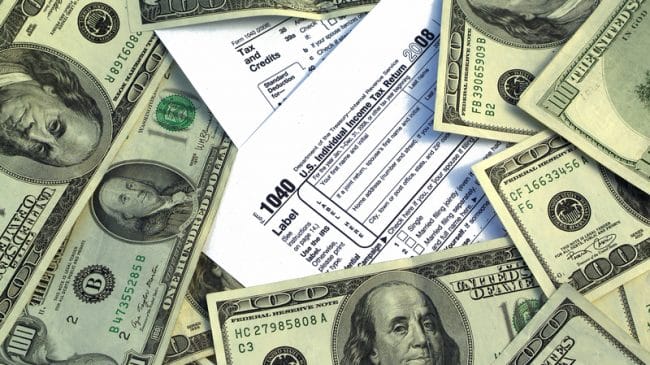Autonomous Vehicles (AVs) are finally getting serious attention from state and local policymakers now that they are threatening them where it hurts: their wallets. The battle over allowing AVs exposes a major flaw in government finance and methodology.
State and local governments employ a simple and dangerously presumptuous method of evaluating their policy decisions and programs, especially ones regarding economics and business (Like approving AV). Simply put, once the government makes an investment or a policy change, they make the assumption that a given amount of economic activity would not have happened without the government’s activity. However, they do not measure economic activity using actual economic data, they measures the taxes they collect from economic transactions they believe they “created” as a proxy for economic activity.
The results are ludicrous claims like a Florida state agency saying that their $8 million dollar budget “created” over $900 million in economic activity that wouldn’t have happened without that magical $8 million dollar investment. This type of report justifies the existence of many a state and local government policy or program by arguing that more economic activity and taxes were generated than what the government invested. The logic you end up with is:
Policies Which Bring More Tax Revenues than Tax Expenditures = Better Economy, Better Government
But what are we really saying when we accept this logic? The error is one given to use by Keynes – that economic progress is predicated upon ever increasing consumer spending, and that government is the institution responsible for marching spending forward year over year when markets “fail”.
The reality is that markets are more complex, and that they naturally go through expansions where people spend more, and contractions where people spend less and save more. The overall goal of the process is to provide goods and services at the lowest possible price, and it requires different rates of spending, savings, and investment at all stages. Consumers are always looking to get the same goods and services at lower prices, and if they don’t like what they see, they signal that to firms by saving or buying somewhere else. Firms act in largely the same way, always looking for ways to provide goods and services at lower cost and cheaper prices. For the most, part this is how free market growth works, and it doesn’t require ever increasing total consumer spending year after year to grow in the long run.
But for the government, total consumer spending has to go up continuously because this is how government makes it money – err – I mean because that’s how they “believe” the economy grows. Thus, AV technology is a threat to government not because it is bad for society (it probably is good), but because it will change and direct economic activity outside of the current tax regime – the gas tax, traffic citations, parking revenues, rental car taxes, etc. In a similar way that internet business upset the sales tax regime.
But is government revenue so important that we should delay innovation to make sure that tax revenues stay consistent and go up? I think there is an argument to be made that technological innovation, especially that on the leading edge, does more for our well being than government services. Wouldn’t we all enjoy paying less gas tax, less parking fees, and less traffic tickets all while getting safer and cheaper travel? The answer seems an obvious one for everyone but legislators.
The key point is this: With the inevitable rapid advance of technology, we cannot have a political economy where government does not approve new technologies until it can figure out a way to tax them sufficiently to keep its revenues steady or moving upward. In a sense, we should shoot first and ask tax questions later. The entire concept that growing tax revenues signals a healthy economy needs to be torn down and reconstructed entirely for the digital age.
Governments should consider looking more towards innovative public private partnerships to solve societal problems. For example, some firms in California help pay for the construction of affordable housing near their workplace to alleviate the housing crunch, some are turning to commuter specific transportation options to reduce traffic congestion and deaths, and approving AV related tech could be another step in this process.
If the point of government is to serve the public good and address public problems, government has to think more creatively than making elementary associations between tax revenues/spending and public good. While some revenue will be necessary to pay down defined benefit pension plans and bond debt, technology like AV should be considered a welcome partner to help solve real societal problems like congestion, parking, and traffic deaths. Figuring out how to tax progress is secondary to progress itself.
But because government needs to see tax revenue to think it’s doing a good job, technology like AV stays sidelined much longer than it needs to. Supposedly for our own societal “good” – or the good of the government revenue stream?
